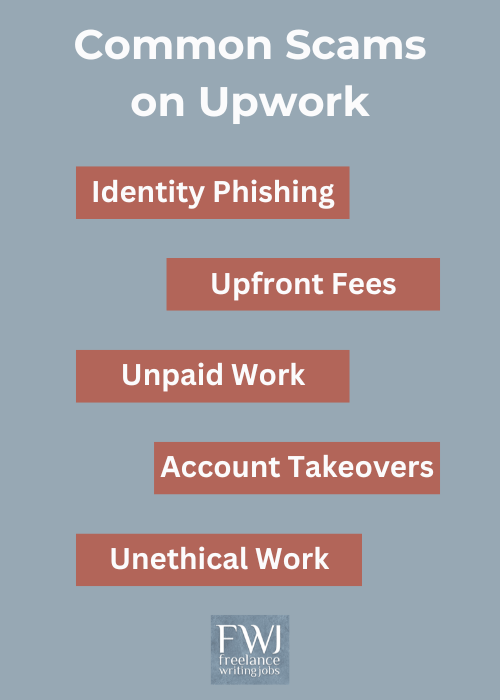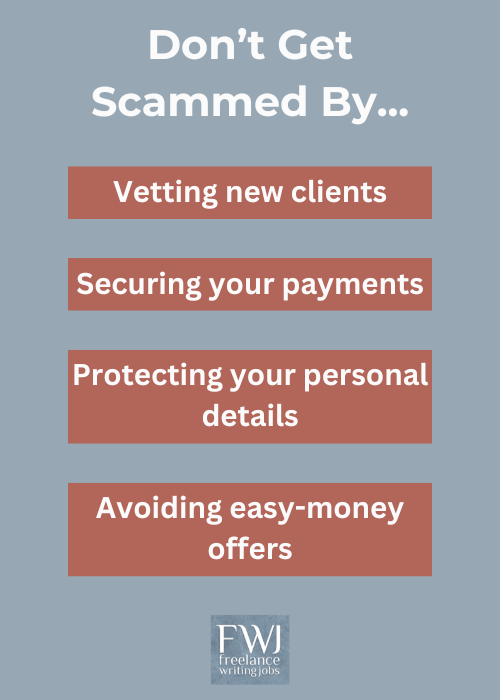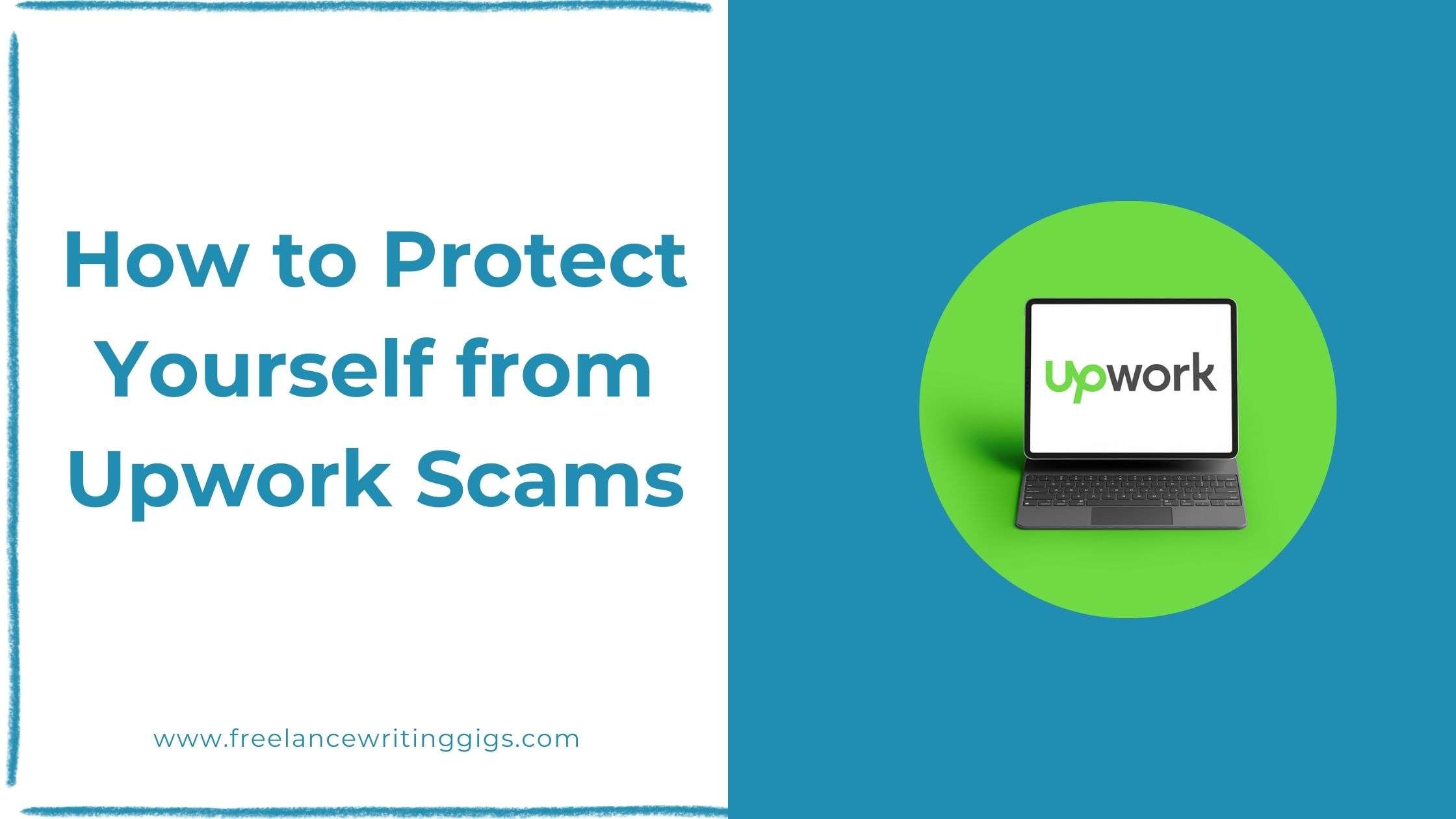With more than 18 million registered freelancers, Upwork has become a major marketplace for finding work in a booming gig economy. However, like many other digital platforms, Upwork has attracted its fair share of frauds and shady individuals.
If you are a freelancer on this popular platform, the likelihood of encountering a scam is alarmingly high today compared to just a few years back. Falling victim to one could mean losing money, compromising your identity, or unwittingly getting entangled in criminal activities.
“Scams are predicated on trust. They exploit the fact that, as humans, we are wired to trust. The key to avoiding scams is skepticism—always question what you’re being told”, says the security technologist Bruce Schneier. And we couldn’t agree more.
The key to working safely on any platform, including Upwork, is to learn to question everything. Here’s what else you need to know.
Prevalent Fraud on Upwork That Targets Freelancers
So, what type of scams do professionals on Upwork encounter frequently?

Identity Phishing
Phishing is at the root of most data breaches—36% to be specific. A simple phishing scam on a platform like Upwork could jeopardize your personal safety, expose you to financial scams, and get you mixed up in various frauds targeting others.
When posing as a client, it is naturally easier for bad actors to dupe unsuspecting job seekers. And there are a number of ways they could steal your identifiable data, such as your date of birth, address, SSN, and bank information.
For instance, they might get you to share such details using a job application form, a pretend interview on Zoom, or spyware embedded in a malicious file.
Upfront Fees
This is an exceedingly common financial fraud freelancers experience on Upwork, where job seekers are tricked into making payments with the promise of paid work.
Scammers might ask you to pay a standard fee to process your application, register in their job bank, or receive job training as part of the onboarding process.
Some freelancers don’t think twice about transferring money in such instances, especially when they are led to believe that there is guaranteed work or a tempting paycheck awaiting them at the end of the process.
No matter what happens, do not pay any fees to potential clients on Upwork.
Unpaid Work
Is a new client on Upwork suggesting a test project before hiring you? Are they pressuring you to complete a few tasks outside the platform? Or are they asking for multiple revisions that fall outside the agreed scope? These are signs of exploitative practices that technically translate into fraud.
Shady actors on Upwork can devise all sorts of schemes to get their work done free of charge.
By getting you to work with them outside the platform, for instance, they can disappear easily once you complete the job. Plus, there is little chance of tracking them down or seeking arbitration from Upwork.
Red flag: when they can say that it’s better to work, let’s say, on Instagram or Telegram, to avoid paying freelancers for their work on Upwork. ❌
Account Takeovers
This is rather obvious, but it still bears discussing. If a random person approaches you via social media or a similar platform and makes a lucrative offer to buy or rent your Upwork profile, beware: You are about to get conned.
Offering a profit-sharing deal to rent your account or a handsome fee to buy it upfront is just part of a larger scheme.
If you agree to it, there is no telling what could happen next—scammers could steal your personal data, including bank account details, or simply lock you out, preventing you from accessing your profile. They can even dupe clients using your identity.
Illegal or Unethical Work
In this type of fraud, deceptive individuals may attempt to get you to perform unethical or illegal tasks under the pretext of legitimate work.
They can, for example, ask you to purchase their product on Amazon and leave a positive review using your personal account. In return, they will promise to reimburse the purchasing cost and compensate you for your time. And chances are, they will keep their end of the deal.
However, by agreeing to do it, you risk getting banned from Amazon. If the client doesn’t pay up, you will not be able to escalate the situation to Upwork since you were not supposed to take on such work in the first place.
How Can You Protect Yourself From Upwork Scams?
Detecting and avoiding fraud on Upwork is not so hard when you adopt the following measures.

Vet New Clients
Separating scammers from legitimate clients can be tricky at first glance. So, you need to do some digging to ensure you are dealing with a genuine employer.
A quick review of the client’s profile could give you enough information to detect any red flags. Upwork provides a range of details—including the number of jobs posted, past hires, the total amount paid, payment method verifications, and reviews—to help you get a better understanding of a client.
Be Skeptical About Upfront Fees
If a potential client asks you to pay for training, work gear, or any other material or service before even starting work, know that it is a scam and walk away.
Often, they will provide convincing reasons to get you on board and make tempting offers that are hard to resist. However, keep in mind that a legitimate organization would never ask a candidate for money during any stage of the hiring process. It is their responsibility to provide you with the specific resources necessary to complete the task.
Besides, Upwork prohibits clients from soliciting payments. And by violating their policies, you could get yourself into trouble.

Secure Your Payments
Before taking up a project on Upwork, you must ensure you will be paid once the task is completed as agreed.
For this, Upwork has an Escrow system, which requires the client to register their payment details. The platform holds the funds and releases them once the client confirms the job is done to their satisfaction. This provides a safety net for both the freelancer and the employer.
Let the client know that Escrow is a must. Putting things in writing, particularly regarding the work scope and terms of work, is equally important.
Protect Your Personal Details
Keeping your personally identifiable information (PII) secure is a top priority, both on and off Upwork’s platform.
This is especially crucial when it comes to protecting your Upwork account, which holds sensitive and confidential data, such as your full name, address, contact number, email, bank account details, and the like.
So, never share your username and password with others, even for seemingly legitimate reasons. Use two-factor authentication to prevent unauthorized access in case your login credentials are compromised.
Avoid Easy Money-Making Offers
There are no get-rich-quick solutions, even on Upwork. If a client is offering an unusually high compensation for a simple task, it is likely because it involves some kind of shady activity. For example, if a client offers $500 to write a 500-word blog post about a general topic that does not need research, then it is a red flag.
Of course, a higher paycheck is not always a sign of fraud. This is why it is important to review the job post carefully.
If the job description is vague, reach out to the client to clarify. A vague job description includes very little information about the job, and there’s usually only one reason—it simply doesn’t exist.
For example, the copywriting job may not include any specific details about what you need to do. Instead, it simply says, “Write an article about technology.” No details, such as the word count or demands for originality or AI, are mentioned in the description.
And if you are unsure whether the work is ethical or legal, you can always contact the Upwork team. The platform doesn’t allow certain types of tasks, and you don’t want to get hired for something prohibited, even by mistake.
Steer Clear of Upwork Scams
Given Upwork’s scale and popularity, it can become an excellent platform for you to kick-start your freelancing career and boost your monthly income.
But, if you are not careful, shady schemes could put a damper on your job-seeking efforts. And there are plenty of them on Upwork, as is the case with any other site that attracts millions of users.
So, remember to remain vigilant and take necessary precautions to amp up security and create a safer work environment.


